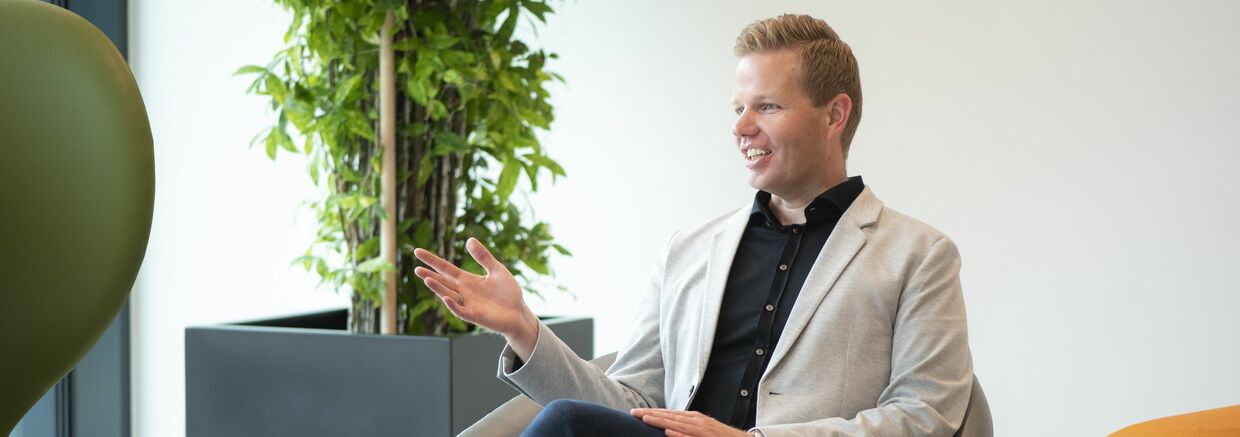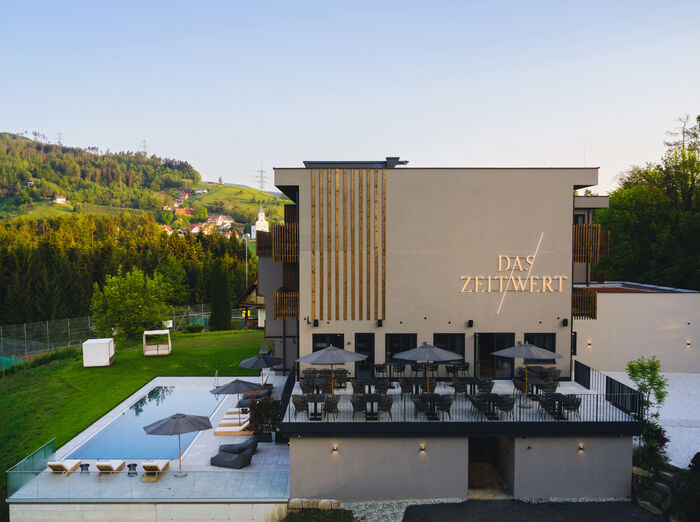
„We’re constantly striving for perfection“
„We’re constantly striving for perfection“
Congress expert Thomas Kahn on challenges, planning tips and trends going beyond sustainability.
These ingredients have all the signs of a recipe for success: Take scenic, picturesque locations, add professional, experienced organisers, and blend everything with an excellent infrastructure. And there you have it: Austria, the leading congress destination. But this event destination doesn’t want to just depend on its good reputation alone. Thomas Kahn, managing director of the Congress Centrum Alpbach (CCA) knows that all too well. In an interview with him, the well-seasoned congress expert talks about current trends besides sustainability, how planners can benefit from Austria's expertise, and the value that individuality brings to the table.

Austria has been considered a popular destination for international congresses and conferences for years. So, what exactly is Austria doing right?
Thomas Kahn: As a destination, Austria basically has many advantages that are beneficial to organisers: for example, great cities and regions with a high quality of life, as well as beautiful areas that score with impressive nature, mountains, and lakes. Culture and infrastructure along with accessibility also speak in favour of Austria. Participants therefore enjoy coming to Austria, which is of course an important factor for organisers. However, the extremely high quality of services offered plus the existing know-how certainly deliver that special added value. Professional service providers have always been able to develop themselves further precisely because Austria is a sought-after global meeting destination. This has resulted in the fact that we know how to deal with the demands of modern congresses and conferences. For that reason, organisers already start out at the high-end, meaning they can concentrate on the details because the basics exist and are readily available. We – and by that I don't just mean us in Alpbach, but very many colleagues in Austria – have recognised that we can be a great congress destination, hence we’re constantly perfecting the framework and general conditions. Our clients benefit from this, and in turn, we do as well.
Which challenges do congress planners currently face?
Thomas Kahn: After the Covid pandemic, everything now seems almost the same as before – but only at first glance. If we take a closer look, we see that the planning behaviour has changed as many things are now allocated within shorter timeframes. Intentions have changed, too, because participants now scrutinise what kind of concrete added value their participation in the congress brings. Organisers are therefore required to focus still more intensely on quality. And more precise evaluation of previous events plus continuous questioning and enhancement is necessary. At first sight this appears to be more of an effort, but in the end, it can lead to still greater success. I actually see this challenge as advantageous and a positive development.
It's a similar case with new technologies. Digitalisation, artificial intelligence, and virtual reality generate completely new opportunities, but here, too, it’s important to define exactly what fits in with the respective congress and what the objective looks like when these new opportunities are put into action.
In a nutshell, the challenge is all about individuality. There’s no magic formula, but it’s specifically that factor that I see as the greatest opportunity!
What is essential when planning a congress? What tips do you give planners?
Thomas Kahn: This ties in with the challenge I mentioned earlier, individuality. Besides paying attention to the “basics” like infrastructure, communication, etc. in the planning phase, it’s also important to define the values and goals of the event. Who do I want to address? What should be conveyed? How can we grab the attention of the participants? What needs do they have? What can’t – under any circumstances – be missing and on the other hand, what “old burdens” can we get rid of?
If right from the beginning, I start thinking concretely about what should take place during my congress and what I want to achieve, and consequently how I should best handle the participants, then many questions regarding the programme and the general conditions will automatically be answered. And next it’s essential to get the right partners onboard, partners who can assist me in achieving precisely these goals. In Alpbach, we focus intensively on bespoke client support during the event planning stage. We also make clients aware of the issues I’ve talked about, and we make an effort to contribute by drawing on our own experiences.
Which trends do you see in the congress industry?
Thomas Kahn: Probably most people would expect me to now say “sustainability,” because here in Alpbach we’re completely committed to this topic. And that's true, sustainability is a megatrend and affects all areas of life. But the term and the topic are developing even further, so I would call it dealing with “values.” All themes that are currently drawing a lot of attention are included here: purpose, legacy, social governance. These terms are becoming more and more present in our industry and our society, and I think it's also very positive that so many people are thinking about how things should move on. We’re presently also dealing with these topics ourselves in Alpbach, which is extremely exciting. The paramount objective now has to be that we all shift over from just talking to actually doing in order to make our contribution. Only then will we be able to positively achieve any further progress. And especially whenever many people congregate, like at congresses and events, we have so many possibilities to make a difference; we have to use these opportunities. It’s not “just” about a trend, it’s about the future!
Tip: Historic building gets new life as conference centre:

The newly opened “Zeitwert” hotel located next to Hollenegg Castle now offers its guests a creative fringe programme for meetings including multiple activities, different types of indulgence, and event breakout sessions in nature. After four years of planning and construction, “zur Taverne,” the former inn surrounded by vineyards has become a conference hotel. Right next to the magnificent building that is so steeped in history, the modern boutique hotel in south-western Styria encourages its guests to consciously break out of their daily routines to have both open and informal meetings, and additionally offers a platform for any kind of business event. Twenty-six rooms, two meeting spaces that can be joined together, a restaurant with sun terrace and an outdoor pool all contribute to rounding off the seminar package in the middle of the wine region.
Would you like to treat your guests to the absolute maximum amount of rest and relaxation after a day’s work is done? These MICE locations ensure participants experience a sense of wellbeing after events are over. An overview of all event locations can be found here.
